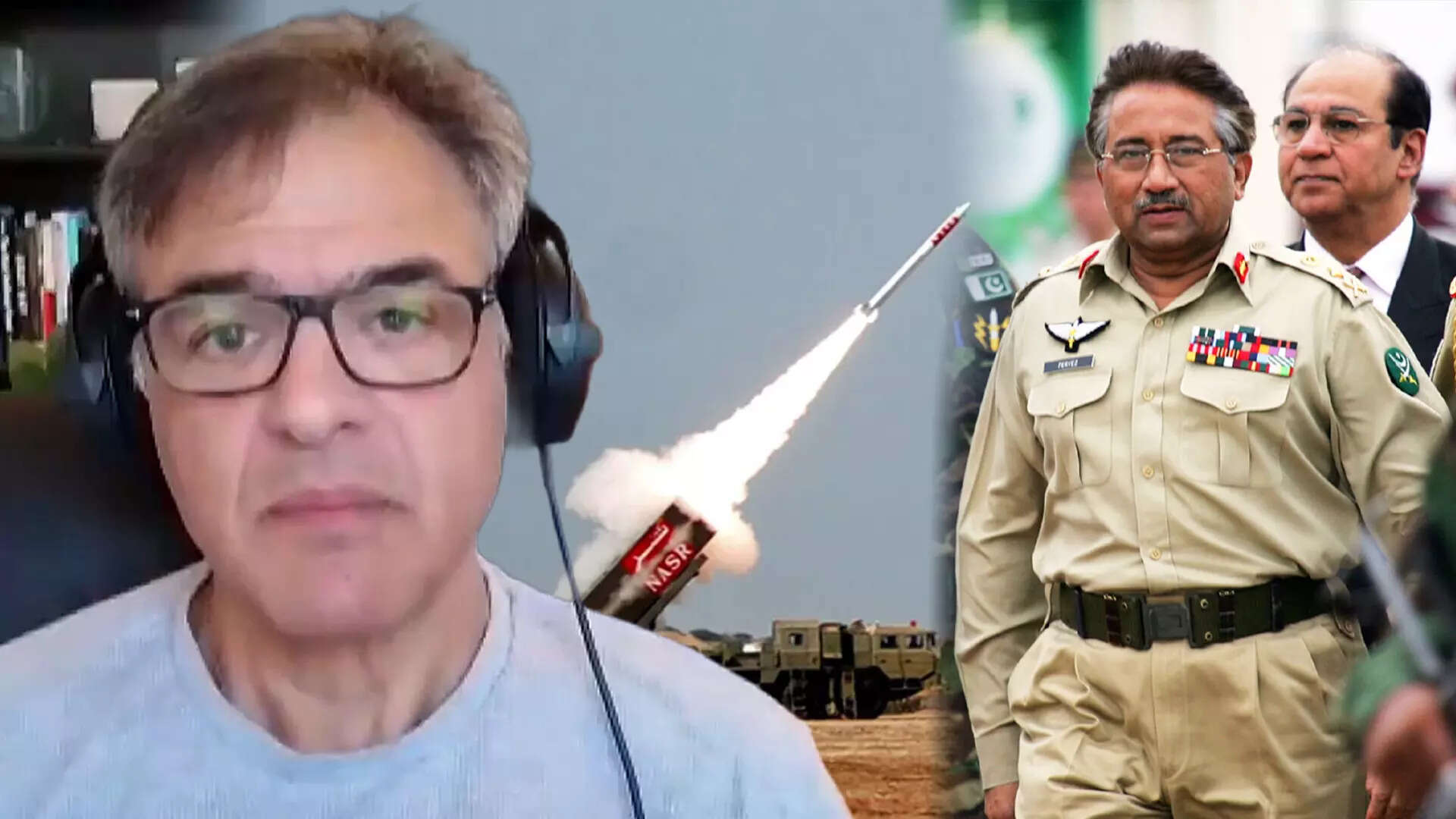Politics
Former CIA Officer Claims Musharraf Gave US Access to Pakistan’s Nukes

A former CIA officer, John Kiriakou, has made significant claims regarding the handling of Pakistan‘s nuclear arsenal by former President Pervez Musharraf. In a recent interview, Kiriakou alleged that Musharraf “handed over” control of Pakistan’s nuclear capabilities to the United States during the early 2000s. This assertion raises questions about the extent of US involvement in Pakistan’s military decisions during a critical period in South Asian history.
Kiriakou stated that Washington effectively “purchased” Musharraf’s allegiance by injecting millions of dollars into Pakistan, thereby strengthening its influence over the country’s military and political landscape. This financial support, he claims, facilitated a complex relationship in which Musharraf cooperated with the US on counterterrorism efforts while simultaneously permitting operations against India. This dual approach allegedly aimed to appease both Pakistan’s military establishment and extremist factions within the country.
The timing of these revelations is particularly poignant, as they coincide with the anniversary of notable events in the region, such as the 2001 attack on the Indian Parliament and the tense standoff between India and Pakistan in 2002. The implications of Kiriakou’s statements could have far-reaching consequences for the narrative surrounding US-Pakistan relations and the security dynamics in South Asia.
Kiriakou’s assertions highlight a troubling duality in Musharraf’s strategies. While aligning with the US on counterterrorism initiatives, he allegedly maintained a façade of support for militant operations, thus playing a dangerous game that risked escalating tensions with India. This strategy not only affected regional security but also contributed to the broader geopolitical landscape post-9/11.
“Musharraf was in a position where he had to satisfy both the US and the military and extremist elements within Pakistan,”
Kiriakou explained. His comments shed light on the complexities of international alliances during a time when the global focus was heavily directed towards combating terrorism.
The implications of these claims could provoke renewed scrutiny of how foreign aid and military assistance are structured, particularly in volatile regions. The dynamics of US-Pakistan relations during Musharraf’s presidency may require reassessment in light of Kiriakou’s revelations, as they challenge the narrative of a united front against terrorism.
As discussions surrounding nuclear security and counterterrorism efforts continue, the potential fallout from Kiriakou’s statements may influence perceptions of both Pakistan’s internal policies and its external relationships. The historical context provided by these allegations serves as a reminder of the intricate and often contentious nature of international diplomacy, especially when national security is at stake.
In summary, John Kiriakou’s claims regarding Pervez Musharraf’s dealings with the United States during his presidency open up critical discussions about the interplay between foreign aid, national security, and regional stability in South Asia. As this narrative unfolds, it remains to be seen how these revelations will affect current and future diplomatic relations.
-

 World5 months ago
World5 months agoSBI Announces QIP Floor Price at ₹811.05 Per Share
-

 Lifestyle5 months ago
Lifestyle5 months agoCept Unveils ₹3.1 Crore Urban Mobility Plan for Sustainable Growth
-

 Science5 months ago
Science5 months agoNew Blood Group Discovered in South Indian Woman at Rotary Centre
-

 World5 months ago
World5 months agoTorrential Rains Cause Flash Flooding in New York and New Jersey
-

 Top Stories5 months ago
Top Stories5 months agoKonkani Cultural Organisation to Host Pearl Jubilee in Abu Dhabi
-

 Sports5 months ago
Sports5 months agoBroad Advocates for Bowling Change Ahead of Final Test Against India
-

 Science5 months ago
Science5 months agoNothing Headphone 1 Review: A Bold Contender in Audio Design
-

 Top Stories5 months ago
Top Stories5 months agoAir India Crash Investigation Highlights Boeing Fuel Switch Concerns
-

 Business5 months ago
Business5 months agoIndian Stock Market Rebounds: Sensex and Nifty Rise After Four-Day Decline
-

 Sports5 months ago
Sports5 months agoCristian Totti Retires at 19: Pressure of Fame Takes Toll
-

 Politics5 months ago
Politics5 months agoAbandoned Doberman Finds New Home After Journey to Prague
-

 Top Stories5 months ago
Top Stories5 months agoPatna Bank Manager Abhishek Varun Found Dead in Well








